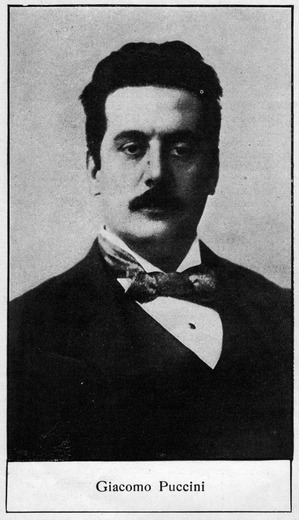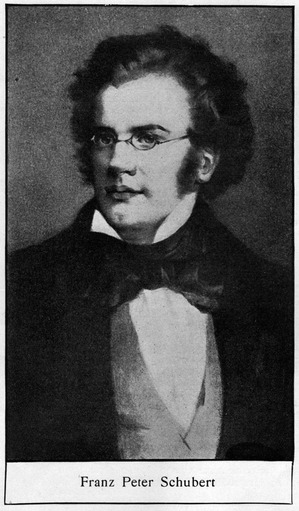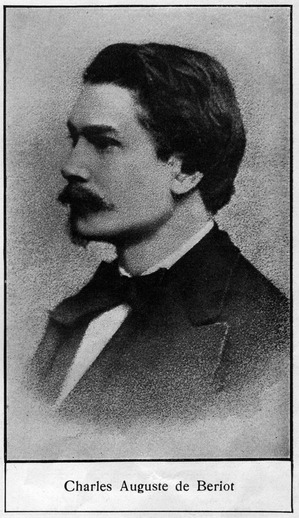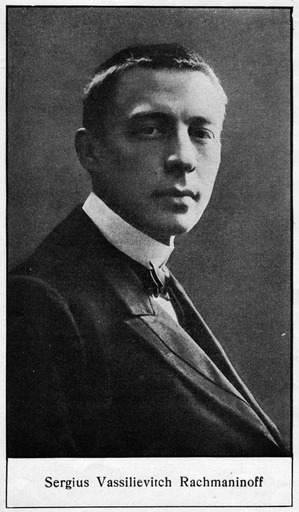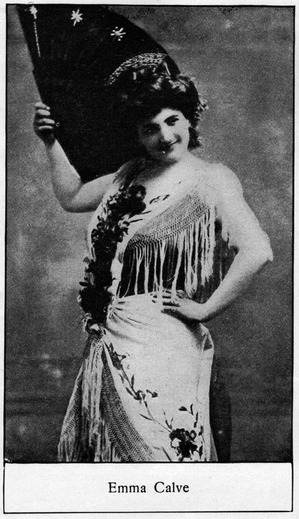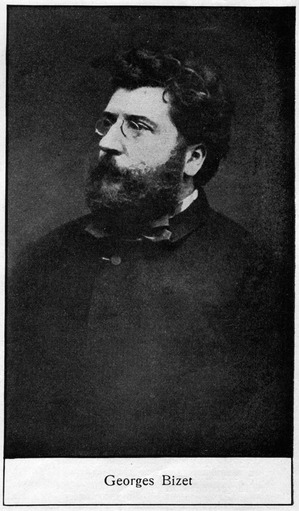(Poo-tchee'-nee.)
This brilliant composer was born at Lucca, Italy, June 22, 1858. Angeloni, of Lucca, was his first instructor, but he subsequently studied under Ponchielli at Milan Conservatory. The success of his Sinfonia-Capriccio prompted Puccini, on the advice of Ponchielli, to attempt an opera. "Le Villi" was the result, and met with favor. Subsequently it was enlarged and produced at La Scala, Milan. Puccini's next opera, "Edgar," failed, but he atoned for this in 1893 with "Manon Lescaut." In 1896 "La Bohème" was produced at Turin (February 1), and this placed its composer among the foremost of the young Italian composers. Much of "La Bohème" deals with the composer's own recollections of days spent not unhappily despite an empty purse. "Tosca" was produced in Rome, January 14, 1900, and following this came "Madam Butterfly," the most popular of all Puccini's works. (La Scala, Milan, 1904.) The world is still awaiting Puccini's setting of "The Girl of the Golden West" (1909), and it is possible that this work will show an advance over its predecessors. Puccini has a wonderful gift of melody, and his orchestral and harmonic skill happily reflect the ever-changing moods of the drama he depicts. He is easily the best of the young Italian composers.
(Shoo'-bairt.)
Schubert was born at Lichtenthal (near Vienna), January 31, 1797, and died in Vienna, November 19, 1828. He was one of fourteen children, and lived in great poverty. Holzer, a Lichtenthal musician, gave him his first instruction, and Schubert showed abnormal skill in harmony. His voice procured him a position in the Convict, Vienna, where boys were trained for the Imperial Chapel choir. The boys were encouraged to study composition, but the work was of a desultory nature. In 1813 Schubert's voice broke, and, as he failed to pass the examination which would have brought him a scholarship, he qualified as a schoolmaster, and for three years aided his father in Lichtenthal. Salieri aided him in the study of composition, and his works achieved occasional performance. Between his seventeenth and eighteenth birthdays he composed one hundred and forty-four songs, and so prolific was he that he once wrote eight songs in a single day, including "The Erl-King." In 1818 and 1824 Schubert spent his summers as teacher in the family of Count Esterhazy, but mostly his life was spent among Bohemian companions in various stages of poverty. His compositions range from his wonderful songs to symphonies, and in all he proved himself one of the supreme masters. Not even the story of Mozart is more pitiable than that of the neglect Schubert received from his contemporaries.
(Béh'-reeo.)
De Bériot was born in Louvain, Belgium, February 20, 1802, and died at Louvain, April 8, 1870. He studied the violin under his guardian, Tiby, but in his nineteenth year he went to Paris, and, though he did not study with Viotti and Baillot, as reported, his work was supervised by them. He then went on tour, meeting with great success in London, Paris and the great music centers of Europe. In 1836 he married Maria Malibran. After her death, in the same year, de Bériot lived in Brussels, playing little in public. Four years later, however, he went on tour in Germany, where he met and married Marie Huber. The death of Baillot took place in 1842, and his position as instructor at the Paris Conservatory was offered to de Bériot. The great violinist, however, rejected the offer, and in 1843 became chief violin instructor at the Brussels Conservatory. On account of failing eyesight he retired in 1852, and in 1858 became totally blind. He published a great amount of violin music, including seven concertos and eleven airs variès, and much pedagogic material. He founded the Franco-Belgian violin school of playing, and possessed wonderful technic. He followed the style of Pagannini (sic) rather than than (sic) of the French school, seeking brilliance of effect rather than purity of tone.
(Rach-man-een'off.)
The birth of Rachmaninoff took place at Nijni-Novgorod, April 2, 1873. In 1882 he entered the St. Petersburg Conservatory and studied under Demjanski until 1885, when he proceeded to Moscow. At the Conservatory in this city he studied under Siloti for pianoforte. Composition he studied under Arenski and Taneieff, and in 1891 he won the "grand gold medal." He then distinguished himself as a concert pianist, and spent some time giving recitals, with such success that he was engaged by the London Philharmonic Society as pianist, conductor and composer. Here again he met with considerable favor. In 1902 he played at the Vienna Symphony concerts, and in 1903 accepted a position as a teacher in the Marien Institute for Girls in Moscow. During the coming season (1909-10) he is to make his appearance in America. At present, however, he is better known in this country as the composer of the beautiful "Prelude in C sharp minor," and various other pianoforte compositions. Rachmaninoff is also the composer of a considerable amount of music of a more elaborate nature. His one-act opera, "Aleko," was produced with success in Moscow in 1893. He has also composed a considerable amount of orchestral music, including a symphony.
(Cal-vay.)
Authorities differ as to the date and place of birth of Calve, but according to Grove she was born at Madrid, in 1864. She was a pupil of Marchesi and of Puget. Her first important appearance was at the Theatre Monnaie, in Brussels, September, 1882, where she made her debut as Marguerite in "Faust." Her first Paris appearance was as Bianca in Dubois' "Aben Hamet," at the Théâtre Italien. December 16, 1884. After a tour through Italy she again sang in Paris as Lelia in Bizet's "Pêcheurs des Perles," in 1889. She also created the rôle of Santuzza, at the first production of "Cavalleria Rusticana," in Paris, January 19, 1892, appearing later in the same year at Covent Garden, London, in this opera. It is, however, as Carmen that Calvé will be remembered, and few who were present will forget the indescribable sensation she created in New York when she made her first appearance in this rôle, December 20, 1893. She made her New York debut as Santuzza a month previous to the "Carmen" production. She then toured the principal cities of Europe, meeting with uniform success wherever she went. Calvé did not appear in opera during the past season, but she toured America, giving many concerts to delighted audiences.
(Bee-zay'.)
Born at Paris, October 25, 1838, Bizet early showed signs of extraordinary ability. He entered the Paris Conservatoire in 1848, where he remained until 1857, studying piano with Marmontel, organ with Benoist, harmony with Zimmermann, and composition with Halévy, whose daughter he married in 1869. He won the coveted "Prix de Rome" in 1857, and proceeded to Italy. At intervals he sent back examples of his work in composition of an elaborate nature, but neither then nor on his return to France did he succeed in winning favor at first. In fact he barely lived long enough to enjoy the fruits of his genius. His opera, "Les Pêcheurs de Perles," achieved a certain amount of success, but it was not until the production of "Carmen" that Bizet became famous. Three months after the production of "Carmen" he died, at Bougival, near Paris, June 3, 1875. His incidental music to Daudet's play, "L'Arlésienne," met with approval, and is now frequently heard at orchestral concerts in the form of a suite. His music possesses great melodic charm, and Bizet had tremendous skill in producing "local color." "Carmen" is full of it, and the whole score is impregnated with the warm glow of the South. He was greatly given to experimenting with his orchestra, and his works may be examined by orchestral students with great profit.


